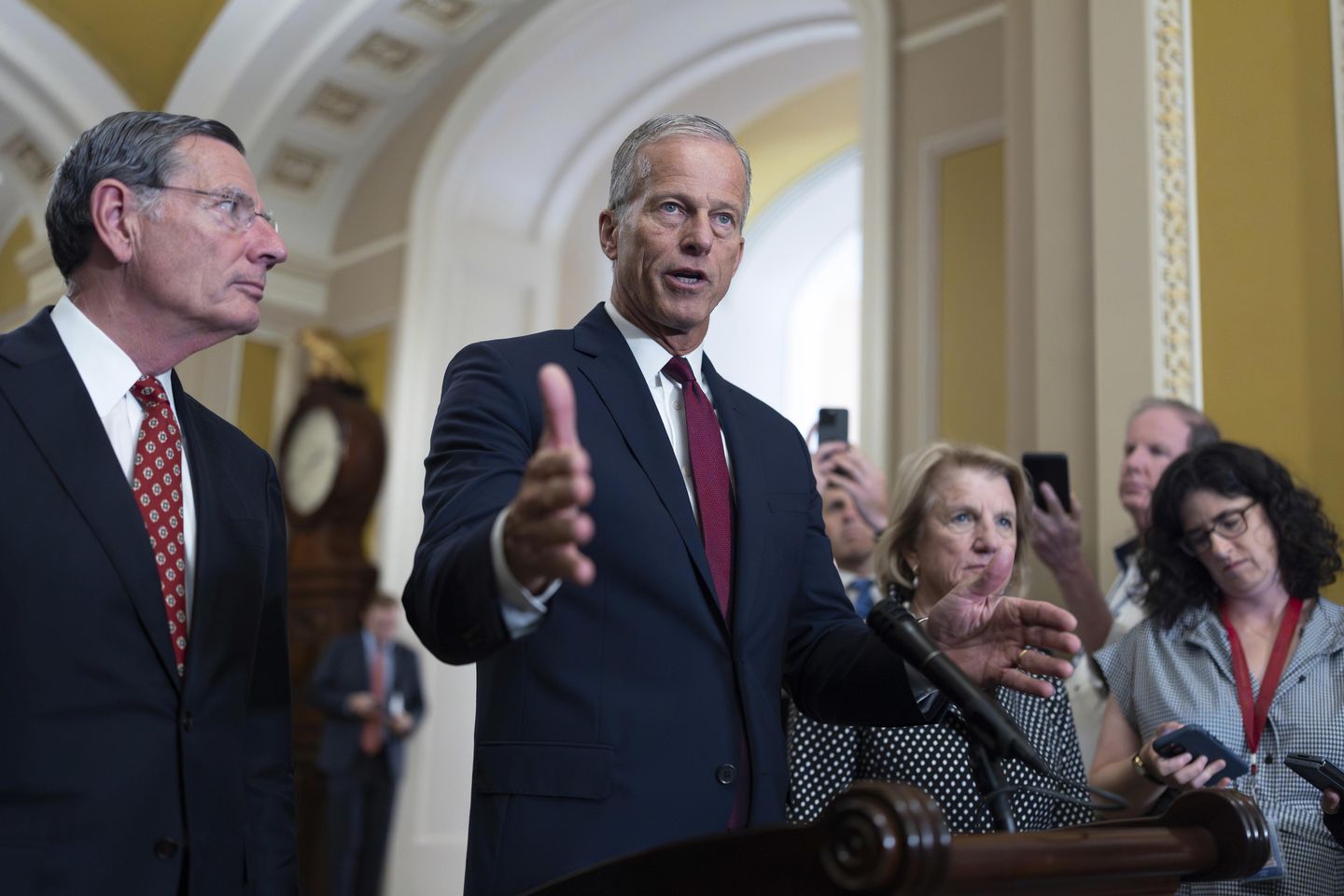
Don’t miss the full story from our staff writers, whose reportage is the basis of this article.
Senate Majority Leader John Thune announced plans to change Senate rules to expedite the confirmation of President Trump’s nominees, citing unprecedented Democratic obstruction. Thune filed a resolution Monday to confirm 48 sub-cabinet nominees as a block rather than individually, with a procedural vote scheduled for Thursday.
The proposed rule change would allow a simple majority vote to end filibusters on batches of sub-cabinet nominees, rather than requiring 60 votes. Currently, while individual nominees only need majority support to overcome filibusters, the rules don’t permit grouping these votes together. Republicans argue this change is necessary because Democrats refuse to provide unanimous consent for any civilian nominees, even those with bipartisan committee support.
Sen. Thune characterized Democratic resistance as “the world’s longest, most drawn-out temper tantrum over losing an election,” claiming it’s not about nominee quality but pure partisan obstruction. He noted that 149 civilian nominees have already cleared committee and await floor votes, with hundreds more expected during Trump’s term.
Senate Minority Leader Chuck Schumer defended Democratic opposition, calling Mr. Trump’s nominees “historically bad” and accusing the president of making “a mockery of the nominations process” by selecting unqualified or corrupt candidates. Sen. Schumer revealed that bipartisan negotiations on a nominee package collapsed in July after President Trump intervened and told him to “go to hell,” despite Republican agreement.
Sen. Schumer argued that individual nominee debates provide necessary “sunlight” and deliberation, warning that the rule change would weaken the Senate’s traditional role. He criticized Republicans for lacking backbone in standing up to Mr. Trump’s interference in their July agreement.
Sen. Thune dismissed Sen. Schumer’s July conditions as “extortion,” claiming Democrats demanded billions in spending for their programs in exchange for routine nominee confirmations. While open to renewed negotiations, Sen. Thune rejected returning to those terms.
The rule change would be implemented through the “nuclear option” – a simple majority vote overturning the Senate chair’s ruling, since rules changes typically require supermajorities. Both parties have previously used this tactic to ease confirmation processes.
Republicans noted their proposal resembles a rule change Democratic Sen. Amy Klobuchar proposed last Congress under President Biden, which would have allowed up to 10 nominees from the same committee to be confirmed together. However, the GOP version covers only sub-cabinet positions, excluding Cabinet secretaries, Supreme Court justices, and appeals court judges.
The procedural battle is expected to extend into next week, as Republicans work to implement their rule change and confirm the first batch of Trump nominees.
Read more: Senate Republicans begin to change rules to clear backlog of Trump nominees
This article is written with the assistance of generative artificial intelligence based solely on Washington Times original reporting and wire services. For more information, please read our AI policy or contact Ann Wog, Managing Editor for Digital, at awog@washingtontimes.com
The Washington Times AI Ethics Newsroom Committee can be reached at aispotlight@washingtontimes.com.





![Gavin Newsom Threatens to 'Punch These Sons of B*thces in the Mouth' [WATCH]](https://www.right2024.com/wp-content/uploads/2025/08/Gavin-Newsom-Threatens-to-Punch-These-Sons-of-Bthces-in-350x250.jpg)
![ICE Arrests Illegal Alien Influencer During Her Livestream in Los Angeles: ‘You Bet We Did’ [WATCH]](https://www.right2024.com/wp-content/uploads/2025/08/ICE-Arrests-Illegal-Alien-Influencer-During-Her-Livestream-in-Los-350x250.jpg)


![Black BET Billionaire Donor Stuns Democrats, Gives $500K to Winsome Earle-Sears [WATCH]](https://www.right2024.com/wp-content/uploads/2025/08/Black-BET-Billionaire-Donor-Stuns-Democrats-Gives-500K-to-Winsome-350x250.jpg)





